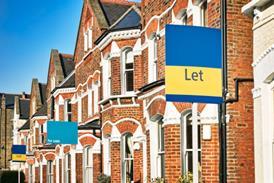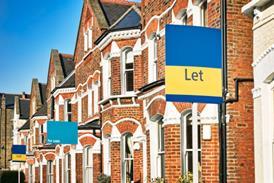Join the Property Section for support, advice and networking opportunities.
The government’s recent announcement about setting ground rents for new leasehold houses and flats to zero may make commonhold a more attractive prospect than it has ever been since its commencement in 2004. James Driscoll explains.
Although it has been on the statute book for several years, commonhold has failed to command the attention of the property market. But recent government statements on the future of the leasehold system may presage a new level of interest in commonhold, particularly if the government keeps its promise to make some fundamental reforms.
Just before Christmas, the Ministry of Housing, Communities and Local Government announced that legislation will be introduced to change the law on long leases of houses and flats, including to require that ground rents on new long leases – for both houses and flats – are set to zero.
Independently of this, the Law Commission announced in December that its next work programme (running to the end of 2021) will include a review of residential leasehold law. The project is planned for completion in June 2019. In late February, it commenced this project by issuing a call for evidence, closing on 19 April, to find out what’s stopping commonhold becoming more common. Later, the project will look at enfranchisement and new lease claims and reforming the laws relating to managing agents.
All this has brought commonhold back onto the agenda. But what is it? How do commonholds work and how are they managed?
What is commonhold?
It is a system under which units – such as a flat, office or shop – are owned freehold under a democratic form of management, with standardised rules. The units are known as ‘commonhold units’ and are owned freehold. At a stroke, this solves one of the key issues affecting the owners of leasehold property: that either the value of their flat can drop as the lease ticks down, or they are put to the expense of seeking a new lease from their landlord.
The legislation
The Commonhold and Leasehold Reform Act 2002 (CLRA 2002) introduced commonhold into English law for the first time. Based on the recommendations of a 1987 report by the Law Commission, it is modelled on systems that have operated successfully in many other countries for several years).
Part 1 of the CLRA 2002 runs to just 70 sections. It appears that the legislative policy was to state the basic principles in the primary legislation, leaving much of the practical detail to secondary legislation. Thus part 1 provides that a commonhold can only be created over registered land where a commonhold association is formed to own and manage the freehold of the common parts.
A commonhold association is a company limited by guarantee whose constitution must conform with the Commonhold Regulations 2004.
Similarly, part 1 of the CLRA 2002 required each commonhold to have a set of standardised rules and principles, confirmed in a commonhold community statement (part IV of the Commonhold Regulations), with ‘local rules’ appropriate to the particular commonhold.

Owning a commonhold unit
As a freehold, a commonhold unit can be bought and sold freely (unlike a leasehold flat, no landlord’s consent has to be obtained first). This embodies the policy that ‘A commonhold community statement may not prevent or restrict the transfer of a commonhold unit’ (section 15(2) of the CLRA 2002).
A unit-holder can grant a lease of the unit. However, this brings me to an issue that is still to be resolved satisfactorily. Under section 17 of the CLRA 2002, no lease can be granted of a residential unit unless it complies with regulations made under the act. Regulations allow, as one might expect, for short lettings by a unit-holder, but a unit-holder may not sell on a long lease. Why? The framers of the legislation did not want the leasehold system (which was at that time supposed to be replaced in due course by commonhold) to ‘contaminate’ a commonhold.
However laudable this might be, it rules out, in practical terms, the use of commonhold sales for shared ownership leases under which a tenant / leaseholder acquires a tranche of the equity. It also appears to rule out the use of Islamic finance to finance the purchase of a commonhold unit. It may be possible to use a form of co-ownership trust to deal with these two related issues.
Or, it might be asked, do we actually need such restrictions on the right of a unit-holder to lease their unit? After all, there are no such restrictions on the leasing of a commonhold unit under a commercial lease, provided it is not a residential commonhold (section 18 of the CCRA 2002).
Managing a commonhold
This is undertaken by the commonhold association, the incorporation of which is one of the essential ingredients for land to be registered as a commonhold. The association manages the development and owns the common parts (defined as any area which is not a commonhold unit – see section 25 of the CLRA 2002), which it must also manage. It manages by applying the rules in the commonhold community statement. Once the original commonhold has been developed, the only people who can be commonhold members are holders of a commonhold unit. Put another way, no external landlord or person without an interest in the development can influence management of the development post-development. The rules and the obligations of the unit-holders are contained in one document only: the commonhold community statement. This is another stark contrast with the leasehold development, where there are as many leases as there are flats (and with some developments, one or more superior leases).
It is likely that many, if not most or all, commonholds will appoint professional managing agents to manage the development. All commonhold members are eligible to be a director of the commonhold association, but the legislation allows someone other than a member to be a director, which seems to envisage professional directors being appointed.
Another contrast is the position where a unit-holder sells the unit. It has already been noted that there can be no restrictions on the sale of a unit. Once a unit-holder sells the unit, any outstanding charges become the responsibility of the new unit-holder. This obviously envisages a prospective purchaser making appropriate enquiries and taking steps to protect its position against unpaid charges. It also strengthens the position of the commonhold association in the case of an unpaid assessment.
The position on assessments and the recovery of expenses is also different from and simpler than that under the leasehold system. Under the CLRA 2002, the commonhold association must give a notice to each unit-holder of the anticipated expenditure (section 38). Unit-holders can respond by either accepting the proposed expenditure or challenging it, in which case the commonhold association must send a further notice, which will either contain revised proposals or confirm the original proposals.
Again, this is worth comparing to the leasehold system: there is no statutory consultation under section 20 of the Landlord and Tenant Act 1985 or right to challenge in the First-tier Tribunal (Property Chamber), with the attendant delays that this can occasion.
Another difference is that if any of the units have been let by the unit-holder (subject to the restrictions referred to above), the commonhold association can, by notice, require the tenant to pay their rent to it in part or full satisfaction of the charges owning.
It is an interesting feature of commonhold that the association must consider mediation as opposed to taking formal legal action. For example, if the commonhold association believe that a unit-holder has broken the rules, they should first consider using mediation to resolve this. There are some exceptions to this: legal action can be taken either where there is an unpaid assessment or in a case where the unit-holder is breaking the rules of the commonhold (anti-social behaviour might be one example).
What’s gone wrong?
Commonhold has been in force since 2004, yet hardly any commonholds have been created. Why has it flopped?
Some of the commonhold provisions need revision. The standard commonhold community statement does not cater well for a mixed-use development where different assessments for the residential and non-residential sections of the building will be necessary. Lenders have expressed concerns over the consequences should a commonhold association enter into liquidation.
But perhaps the greatest impediment to commonhold being embraced by the property market is that developers currently make their profit not only on the sale of flats, but also on the income from the ground rents payable. This income may increase over time under the rent review clauses in the flat leases. And it is a profit that can be realised on the onward sale of the freehold to the block.
But this may change if the government keeps to its promise of introducing a ban on ground rents for new sales. As the lure of the ground rent starts to recede, some developers, at least, may consider using commonhold for new developments.




















